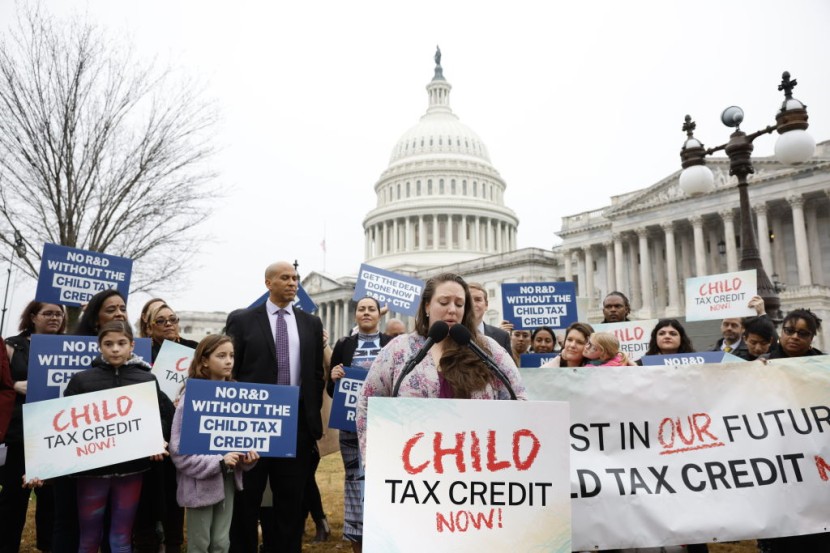The House overwhelmingly approved a bipartisan tax package that combines a temporary expansion of the Child Tax Credit and business tax breaks and credits in an effort to develop more low-income housing.
The new measure comprises $33 billion to expand the widely used Child Tax Credit for three years, which includes the tax season that is currently ongoing, as long as it passes the Senate quickly. The proposed changes would allow more low-income families to gain access to the credit and allow many families to receive a larger credit.

The numbers would also be adjusted for inflation in the coming years and the deal is the result of negotiations between House Ways and Means Committee Chairman Jason Smith and Senate Finance Committee Chairman Ron Wyden.
The deal has provided a rare moment of bipartisanship during a time when Congress has been paralyzed by divisions of varying degrees. Furthermore, the legislation restores several business tax credits, including deductions for research and development and interest expensing for businesses, as per NPR.
The new provisions have the support of many members of both parties, though Republicans have primarily focused on the business credits as their motivation for backing the bill. Despite the House's vote on the measure, the Senate has not scheduled a vote on the bill.
However, Senate Democrats have generally supported the legislation and it could come up for a vote relatively quickly. Some left-wing lawmakers criticized the bill for failing to go far enough to provide support for low-income families.
Some argued that the newest version of the Child Tax Credit expansion is not as generous as a COVID-era policy that many credit with bringing roughly 3 million children out of poverty during the time that it was available.
The bipartisan bill passed the House with a unanimous vote of 357 to 70 but it quickly started to lose momentum ahead of a Senate vote. That is where Republican lawmakers are able to block the measure with a filibuster, according to the Washington Post.
Read Also: Border Concerns Mount as Biden's Approval Rating Plummets to 38%: Latest Reuters/Ipsos Poll
Opponents of the Bipartisan Measure
One of the critics of the bill is Sen. Chuck Grassley from Iowa, arguing that it could help United States President Joe Biden's re-election campaign. He argued that he would evaluate the bill after the House vote.
Grassley noted that passing a tax bill that makes the president look good could allow checks before the re-election. He said that this means that he can be re-elected and then there would be no extension to the 2017 tax cuts.
Sen. Mitt Romney, who previously supported older Child Tax Credit expansions, said that the new legislation was "excessive." He added that it would turn into another entitlement program that would become massively expensive.
On the other hand, a fellow at the Ethics and Public Policy Center, Patrick T. Brown said that the new measure is a fairly modest tweak in the grand scheme of things. He added that it could also pave the way toward a broader conversation about what the purpose of the Child Tax Credit program is, said the New York Times.
Related Article: Congressional Negotiations on Wartime Aid and Border Security Hit Roadblock as Deadline Nears for Ukraine Support
© 2026 HNGN, All rights reserved. Do not reproduce without permission.








